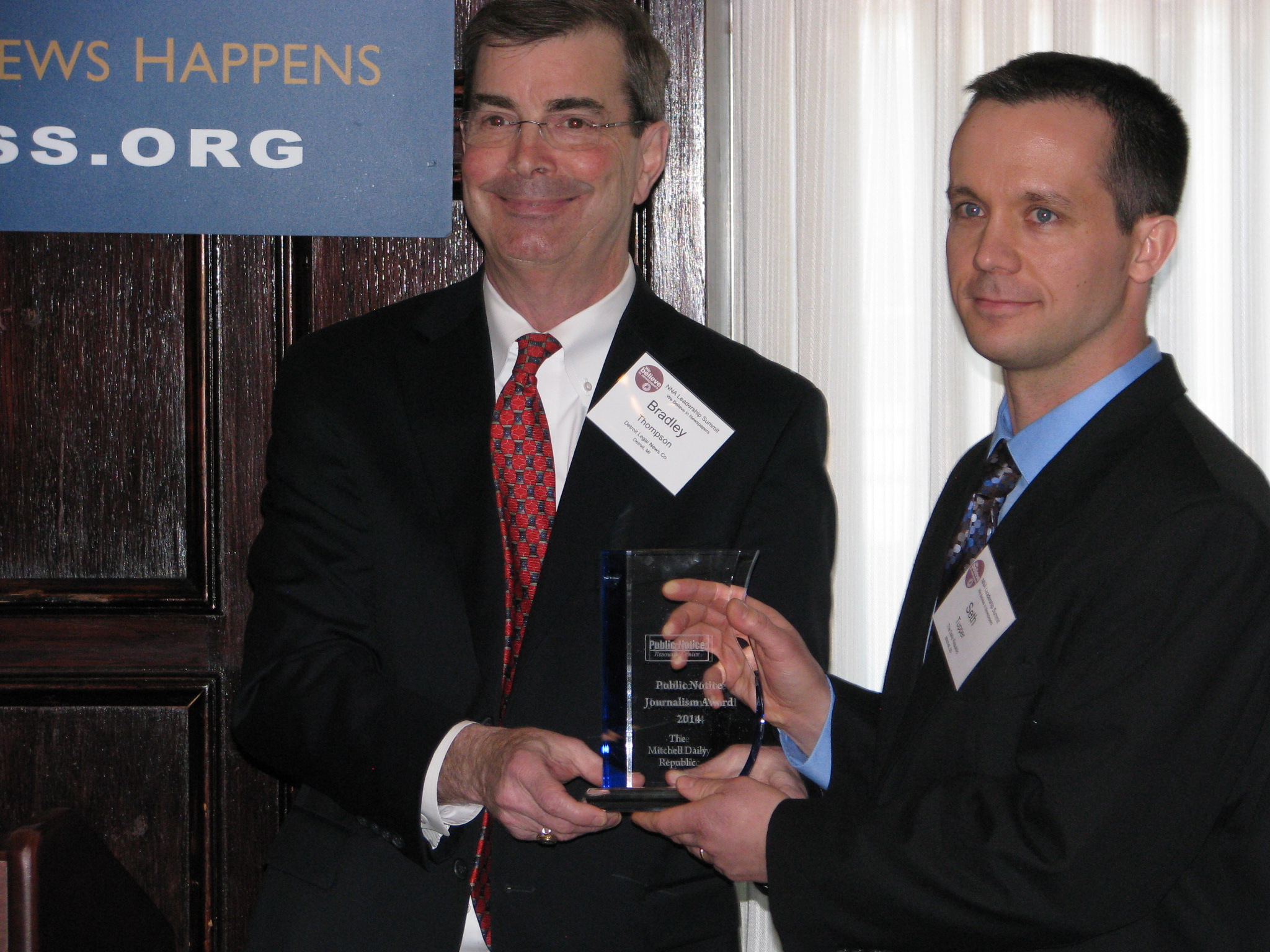Seth Tupper, publisher of the Mitchell (S.D.) Daily Republic, right, received his newspaper’s national Public Notice Journalism Award at the National Newspaper Association’s Leadership Summit at the National Press Club in Washington on March 13. Presenting the award was PNRC President Bradley L. Thompson II, chairman and CEO of the Detroit Legal News.
Bob Schieffer, long-time Washington correspondent for CBS News, lauded the Republic‘s work during his keynote speech at NNA’s Leadership Summit. Bob Schieffer, long-time Washington correspondent for CBS News, lauded the Republic’s work during his keynote speech at NNA’s Leadership Summit. Read South Dakota Newspaper Association general manager Dave Bordewyk’s column about the award and Schieffer’s mention of the newspaper.

